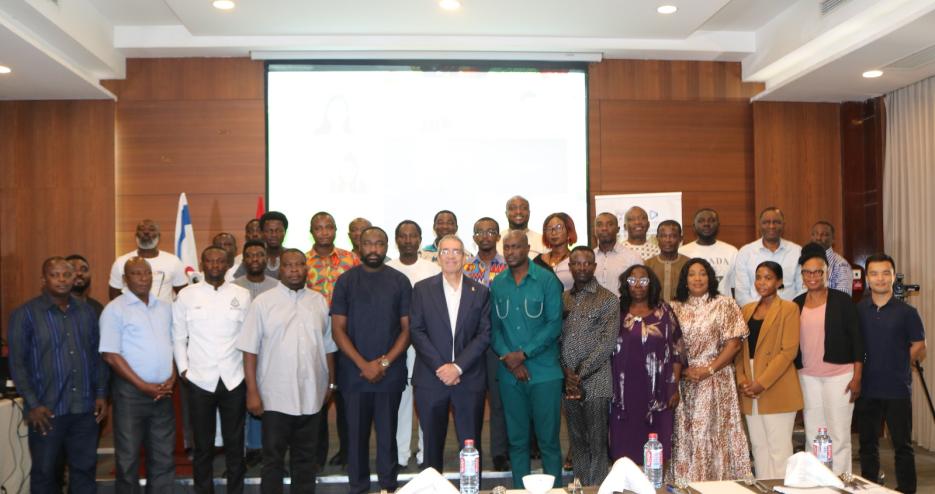Stakeholders in the vegetable production value chain in Ghana on Wednesday (12 March 2025) reaffirmed their commitment to advancing the country’s agricultural sector through Israeli innovation and technology.

Stakeholders in the vegetable production value chain in Ghana on Wednesday (12 March 2025) reaffirmed their commitment to advancing the country’s agricultural sector through Israeli innovation and technology.
This was the focus of a forum held under the theme: Enhancing Ghana’s Vegetable Industry through Israeli Agri-Tech Innovation - Bridging Innovation and Growth in Vegetable Production and Export.
The event organized by Israel’s Economic and Trade Mission to Ghana in partnership with the Vegetable Producers and Exporters Association of Ghana (VEPEAG) brought together key industry stakeholders from the vegetable production value chain to introduce cutting-edge Israeli agricultural technologies that can enhance vegetable production and export in Ghana.
Discussions centered on Israel’s renowned expertise in drip irrigation, greenhouse farming, and other advanced farming techniques that could help Ghana address key challenges in its vegetable industry, including post-harvest losses, limited irrigation, and export standards.
Speaking at the forum, Ambassador Roey Gilad emphasized that agriculture has long been the foundation of Israel-Ghana relations, dating back to 1956, a year before Ghana’s independence.
“Agriculture was, is, and will be the backbone of our partnership with Ghana,” the official stated. “For nearly 69 years, it has been at the center of our cooperation, and we believe this will continue with the current government,” he said.
Ambassador Gilad reaffirmed Israel's commitment to expanding collaborations beyond agriculture, venturing into sectors such as cybersecurity, high-tech, and energy. He, however, acknowledged that agriculture remains a priority, given its vital role in national security and economic growth.
He said, Israel, a country that started as an agricultural economy and later transitioned into a technology-driven powerhouse, still places great emphasis on food security.
“In Israel, we have learned that a state cannot function without sufficient agricultural production,” the official noted. “Ensuring a stable supply of food is a matter of national security.”
Ghana’s vegetable industry currently faces significant challenges, including post-harvest losses, inadequate irrigation, and difficulty in meeting export standards. While Israel may not have solutions to all of Ghana’s agricultural challenges, the embassy believes its high-tech solutions can make a significant impact.
“We believe that Israeli technology can be relevant to some of these challenges. Our expertise in drip irrigation, greenhouse farming, and smart agricultural practices can help Ghanaian farmers maximize yields and improve export quality,” he added.
Strengthening Government-to-Government Collaboration
As part of efforts to cement Ghana-Israel agricultural relations, the Israeli envoy announced plans to meet with Ghana’s Minister of Agriculture and other key government officials to explore new avenues for collaboration.
“These discussions will be critical in shaping the future of our partnership,” Abassador Gilad said. “Today’s forum is just the beginning of a broader dialogue between Ghanaian and Israeli experts.”
The forum provided a platform for knowledge-sharing and fostered deeper engagement between Ghanaian vegetable producers and Israeli agricultural experts.
Participants expressed optimism that Israeli innovations could help transform Ghana’s agricultural sector, making it more productive, sustainable, and competitive on the global market.
